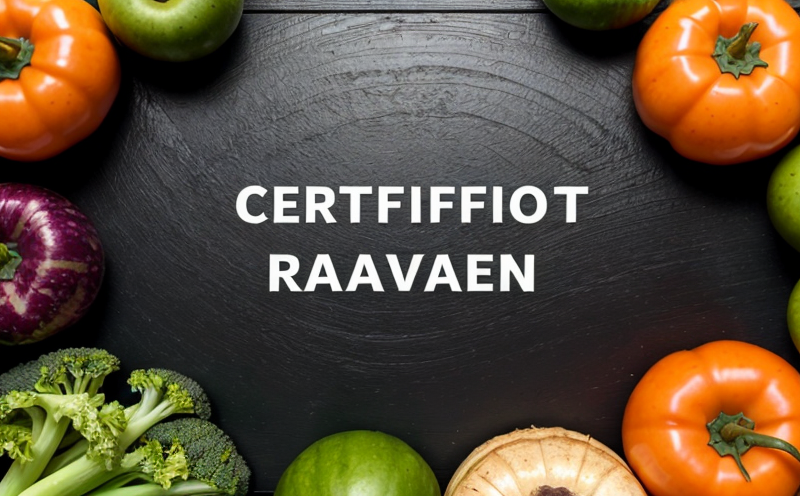
-
Consumer Product Safety-
Certification for Safety in Food and Beverage Industry-
Certification for Food Waste Reduction Standards
We provide comprehensive solutions designed to help our clients mitigate risks, enhance performance, and excel in key areas such as quality, health & safety, environmental sustainability, and social responsibility.
Discover
For many years, our organization has been operating successfully, boasting modern laboratories that meet international standards. These laboratories are equipped with the latest technology devices and equipment, and we have built a strong team of experienced and trained personnel to operate them.
DiscoverWelcome to Eurolab, your partner in pioneering solutions that encompass every facet of life. We are committed to delivering comprehensive Assurance, Testing, Inspection, and Certification services, empowering our global clientele with the ultimate confidence in their products and processes.
Discover
-
Consumer Product Safety-
Certification for Safety in Food and Beverage Industry-
Certification for Food Waste Reduction StandardsCertification for Food Waste Reduction Standards: A Comprehensive Guide
The issue of food waste has become a pressing concern globally, with approximately one-third of all food produced being lost or wasted. This staggering statistic not only highlights the inefficiency in our global food system but also underscores the need for sustainable practices and standards to minimize waste. One way to address this issue is through certification programs that promote and enforce food waste reduction standards.
What are Food Waste Reduction Standards?
Food waste reduction standards refer to guidelines and protocols designed to minimize food waste throughout the entire supply chain, from production to consumption. These standards aim to ensure that food businesses and organizations take responsible steps to reduce their food waste, thereby contributing to a more sustainable food system. Some common practices included in these standards include:
Reduced costs associated with waste disposal
Enhanced brand reputation through sustainable practices
Compliance with regulatory requirements
2. How do certification programs for food waste reduction standards work?
Certification programs promote best practices and provide resources for businesses.
Organizations undergo a thorough evaluation process, including an on-site audit.
Documentation and evidence must be provided to support claims.
3. What are some common practices included in food waste reduction standards?
Food recovery: donating surplus food or using it as animal feed
Food recycling: converting food waste into nutrient-rich fertilizers or biogas
Composting: breaking down organic matter, including food waste, into a natural fertilizer
4. Why is it essential to reduce food waste in the supply chain?
To minimize losses and reduce costs associated with waste disposal
To enhance brand reputation through sustainable practices
To comply with regulatory requirements
5. What are some notable certification programs for food waste reduction standards?
Food Waste Reduction Alliance (FWRA)
Zero Hunger Challenge
GlobalGAP

Industrial Equipment Certification
Industrial equipment certification is a critical process that ensures industrial equipment meets spe...

Construction and Engineering Compliance
Construction and Engineering Compliance: Ensuring Safety, Quality, and Regulatory Adherence In the ...

Product and Retail Standards
Product and Retail Standards: Ensuring Quality and Safety for Consumers In todays competitive marke...

Automotive Compliance and Certification
Automotive Compliance and Certification: Ensuring Safety and Efficiency The automotive industry is ...

Military Equipment Standards
Military Equipment Standards: Ensuring Effectiveness and Safety The use of military equipment is a ...

MDR Testing and Compliance
MDR Testing and Compliance: A Comprehensive Guide The Medical Device Regulation (MDR) is a comprehe...

Fire Safety and Prevention Standards
Fire Safety and Prevention Standards: Protecting Lives and Property Fire safety and prevention stan...

Environmental Impact Assessment
Environmental Impact Assessment: A Comprehensive Guide Environmental Impact Assessment (EIA) is a c...

Lighting and Optical Device Testing
Lighting and Optical Device Testing: Ensuring Performance and Safety Lighting and optical devices a...

IT and Data Center Certification
IT and Data Center Certification: Understanding the Importance and Benefits The field of Informatio...

Consumer Product Safety
Consumer Product Safety: Protecting Consumers from Harmful Products As a consumer, you have the rig...

Healthcare and Medical Devices
The Evolution of Healthcare and Medical Devices: Trends, Innovations, and Challenges The healthcare...

Environmental Simulation Testing
Environmental Simulation Testing: A Comprehensive Guide In todays world, where technology is rapidl...

Pharmaceutical Compliance
Pharmaceutical compliance refers to the adherence of pharmaceutical companies and organizations to l...

Agricultural Equipment Certification
Agricultural equipment certification is a process that ensures agricultural machinery meets specific...

Electromechanical Safety Certification
Electromechanical Safety Certification: Ensuring Compliance and Protecting Lives In todays intercon...

Renewable Energy Testing and Standards
Renewable Energy Testing and Standards: Ensuring a Sustainable Future The world is rapidly transiti...

Transportation and Logistics Certification
Transportation and Logistics Certification: A Comprehensive Guide The transportation and logistics ...

Railway Industry Compliance
Railway Industry Compliance: Ensuring Safety and Efficiency The railway industry is a critical comp...

Pressure Vessels and Installations Testing
Pressure Vessels and Installations Testing Pressure vessels are a critical component of various ind...

Food Safety and Testing
Food Safety and Testing: Ensuring the Quality of Our Food As consumers, we expect our food to be sa...

Cosmetic Product Testing
The Complex World of Cosmetic Product Testing The cosmetics industry is a multi-billion-dollar ma...

NEBS and Telecommunication Standards
Network Equipment Building System (NEBS) and Telecommunication Standards The Network Equipment Bu...

Trade and Government Regulations
Trade and government regulations play a vital role in shaping the global economy. These regulations ...

Battery Testing and Safety
Battery Testing and Safety: A Comprehensive Guide As technology continues to advance, battery-power...

Chemical Safety and Certification
Chemical safety and certification are critical in ensuring the safe management of products and proce...

Energy and Sustainability Standards
In today’s rapidly evolving world, businesses face increasing pressure to meet global energy a...

Electrical and Electromagnetic Testing
Electrical and Electromagnetic Testing: A Comprehensive Guide Introduction Electrical and electrom...

Hospitality and Tourism Certification
Hospitality and Tourism Certification: Unlocking Opportunities in the Industry The hospitality and ...

Aviation and Aerospace Testing
Aviation and Aerospace Testing: Ensuring Safety and Efficiency The aviation and aerospace industr...